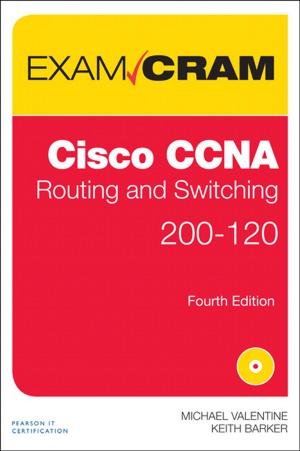The Network Challenge (Chapter 25)
Network-Based Strategies and Competencies for Political and Social Risk Management
Business & Finance, Management & Leadership, Planning & Forecasting| Author: | Witold J. Henisz | ISBN: | 9780137015559 |
| Publisher: | Pearson Education | Publication: | May 19, 2009 |
| Imprint: | FT Press | Language: | English |
| Author: | Witold J. Henisz |
| ISBN: | 9780137015559 |
| Publisher: | Pearson Education |
| Publication: | May 19, 2009 |
| Imprint: | FT Press |
| Language: | English |
From oil companies seeking rights to drill to consumer products firms attempting to forestall a consumer boycott, organizations often seek to influence political or social policy to achieve their own objectives. But to exert this influence, they need to understand the structure of political and social networks. In this chapter, Witold Henisz examines how information about the structure of political and social networks can be integrated into data acquisition and analysis, as well as strategy implementation. Although sophisticated companies have long relied on an informal understanding of networks of informants to gather information about social and political actors at home and abroad, the analysis of the information and design of an influence strategy has too often occurred without reference to that structure. As Henisz points out, a more rigorous approach to analysis is transforming political and social risk management from art to quasi-formal science. This chapter outlines the past, present, and future frontiers of political and social risk management with particular attention to using an understanding of the network structure of diverse actors in perceiving, analyzing, and influencing the political and social environment.
From oil companies seeking rights to drill to consumer products firms attempting to forestall a consumer boycott, organizations often seek to influence political or social policy to achieve their own objectives. But to exert this influence, they need to understand the structure of political and social networks. In this chapter, Witold Henisz examines how information about the structure of political and social networks can be integrated into data acquisition and analysis, as well as strategy implementation. Although sophisticated companies have long relied on an informal understanding of networks of informants to gather information about social and political actors at home and abroad, the analysis of the information and design of an influence strategy has too often occurred without reference to that structure. As Henisz points out, a more rigorous approach to analysis is transforming political and social risk management from art to quasi-formal science. This chapter outlines the past, present, and future frontiers of political and social risk management with particular attention to using an understanding of the network structure of diverse actors in perceiving, analyzing, and influencing the political and social environment.















